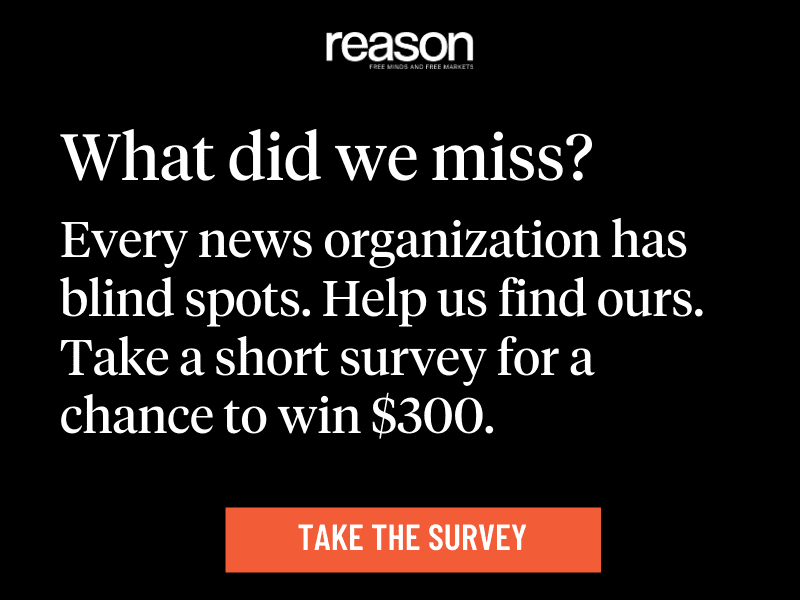Court Upholds Florida School District’s June 2020 Decision to Cancel Food Supply Contract with Farm Whose Owner Viewed as Covid as Hoax
By Eugene Volokh
Copyright reason

The First Amendment’s prohibition on any law “abridging the freedom of speech” leaves room for the government’s interests when it acts as an employer or marketplace consumer, rather than as a sovereign. In those contexts, to protect workplace efficiency and related interests, the government retains the ability to restrict its employees’ speech well beyond the limitations it could place on private citizens. Otherwise, even backtalk about the most trivial internal matters could open a constitutional debate, potentially grinding essential government services to a halt.
Of course, that does not mean government employees have no free speech rights at all. Our cases have built a framework for vindicating public employees’ First Amendment rights while still respecting the government’s legitimate workplace interests. Under the employee-speech doctrine, we work through three questions to assess whether the government has unconstitutionally retaliated against an employee’s speech. First, did the employee speak “as a citizen on a matter of public concern”? Second, did the employee’s right to speak outweigh the government’s interest “in effective and efficient fulfillment of its responsibilities”? Third, did the speech play “a substantial part in the adverse employment action”? …
Here, the speaker was not a government employee. He was the owner of a business that contracted with the government. But the Supreme Court has already confirmed that … the public employee speech cases … apply to independent contractors. “Independent government contractors are similar in most relevant respects to government employees, although both the speaker’s and the government’s interests are typically—though not always—somewhat less strong in the independent contractor case.” …
Oakes clears the first step of the … test. When posting about controversial political topics on his personal Facebook page, on a Saturday no less, he was speaking as a citizen on matters of public concern. We turn, then, to the heart of the government-contractor speech analysis: balancing the school district’s legitimate interests against Oakes’s right to free speech….
Because courts are not human resources departments, we engage in a “deferential weighing of the government’s legitimate interests” to avoid constitutionalizing every workplace grievance. Under that standard, we cannot say that the school district’s interests here were insignificant. After all, the owner and namesake of Oakes Farms not only believed, but also felt compelled to publicly declare, that the Covid-19 pandemic was a conspiracy by “corrupt world powers” to bring down disfavored political figures, that only “lemmings” who were “controlled by deceit and fear” could be concerned about it, and that safety precautions taken in response were bringing the nation’s economy “to ruins.”
Superintendent Adkins had more than a thin basis for alarm. The combination of all those statements is highly probative of, as Adkins himself put it, “not taking this seriously.” Add to that the less-than-reassuring responses following the school district’s efforts to verify the adequacy of Covid safety protocols at Oakes Farms, and we cannot discount the weight of the district’s interest in ensuring food safety for its students.
Adkins always—both publicly and privately—grounded his decision to cancel the contract on his concern for food safety. He testified that “[s]taff brought to [him] a concern about the lack of protocols that Oakes Farms had in terms of how it handled its food.” That those worries blossomed into an investigation of Oakes Farms’ antivirus protocols underscores their grounding in food safety. As Adkins explained, “Oakes Farms’ perceived lack of concern regarding the easy transmission of COVID-19 and Mr. Oakes’ belief that COVID-19 is not real” threatened “the health, safety, and welfare of the children” at Lee County schools. And he said that knowing the decisions he made “impact[ed] the lives of our students” and “their families,” he needed “to err on the side of safety, particularly during a health crisis pandemic.” We should be clear that this testimony supports the argument that Adkins’s concern was food safety—not disagreement with Oakes’s views about Covid.
To be sure, it appears obvious that Adkins did disagree with Oakes about Covid-19. But that difference in viewpoint was not the basis for his actions—a concrete concern about food safety was. That Oakes’s speech alerted Adkins to the concern does not mean that he was being punished for his viewpoint, just like firing an employee after he confesses to embezzlement is not the same as punishing him for his different perspective on personal use of company funds.
There are fair questions about the strength of the district’s interests because of what we know today about how Covid-19 spreads and its relationship to food safety. And Oakes Farms points to an FDA statement printed on the Marjon Specialty Foods protocols it handed over to school officials: “Currently there is no evidence of food or food packaging being associated with transmission of COVID-19.” But the uncertainty and fear that were almost omnipresent during June 2020 make a demand for perfect scientific precision unfair to the school district. And poking holes in its choices with the benefit of hindsight is far from the deferential posture we assume when reviewing the government’s interests.
That is not to say that any government fear justifies terminating a contract based on a contractor’s speech. If Oakes owned a company that provided the school district with software, his views on Covid-19 would likely have been irrelevant. It would have been much harder for the district to show that it canceled the contract for any reason besides disagreeing with his viewpoint on Covid (or any of the other issues). But here, the tight connection between produce and physical health gave the government’s interests significant heft.
No doubt, Alfie Oakes’s interests were also substantial. He was speaking on matters of great public concern and widespread discussion. He posted on his personal Facebook page on a Saturday, and the speech drew no direct connection to his contract with the district. But ultimately, when viewed with the required deference, the school board’s interests in ensuring the safety of food served to its students outweighed Oakes’s right to free expression….



